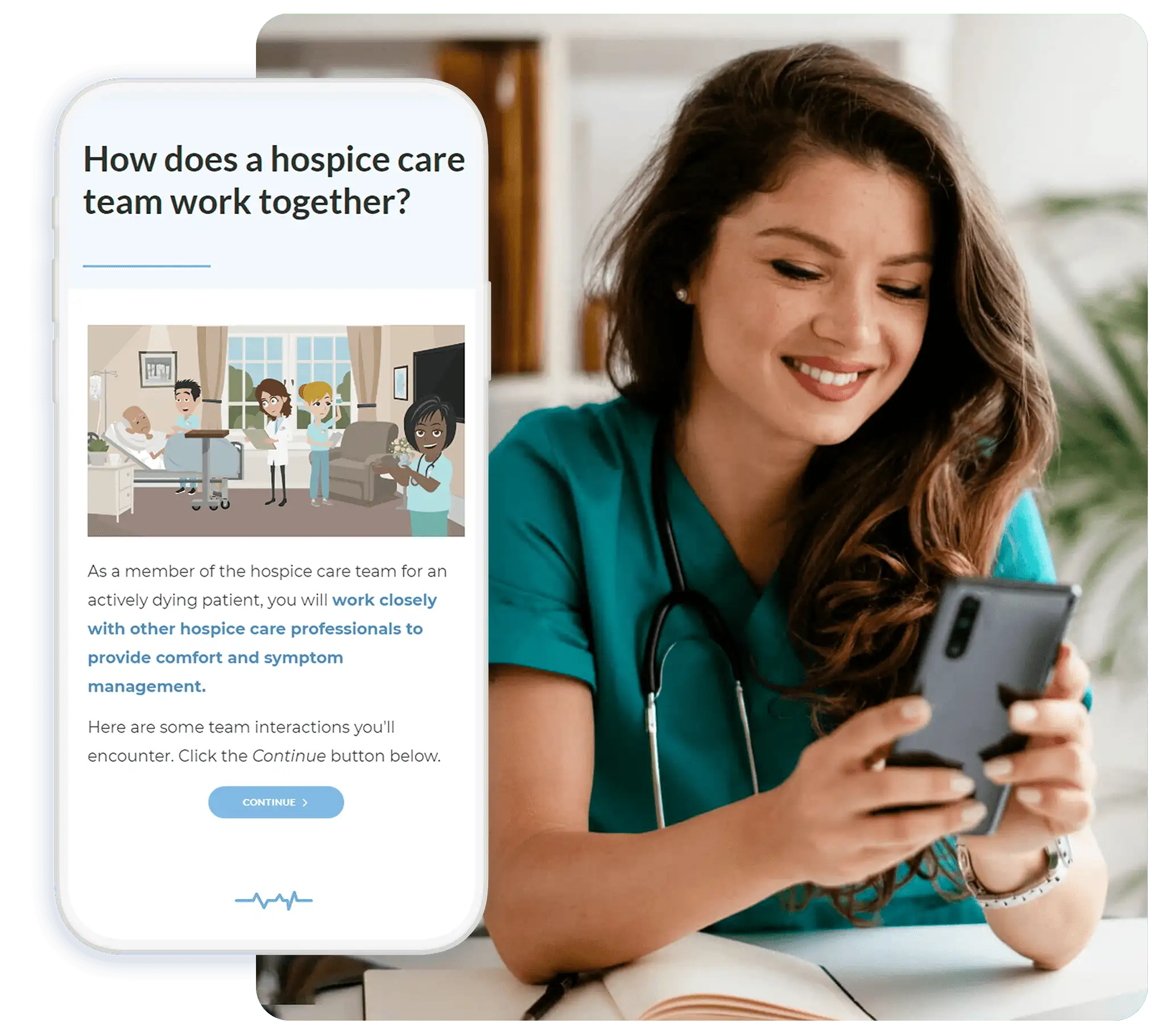A Quick Look at the History of Passover
In the week of Passover, many families are celebrating this Festival with family or missing their family. This Festival is seven days long (eight days are usually observed outside of Israel). It is a time to spend together with family and it can be a powerful spiritual experience for those interested in the transcendent aspects of life.
The Passover Seder is a symbolic ritual which offers the opportunity to free us from those things which enslave us in our lives each year. For example, Egypt is the symbol for all that enslaves you and keeps you from spiritually moving forward in Life. Mitzrayim is the Hebrew word for Egypt, but it is a play on words, also meaning the “narrow places”. What are the narrow places, difficulties in your life from which you would like freedom?

CONTINUA LEARNING
Simplify Your Hospice Team’s Training and Skill Building
A complete solution for your agency: more than 125 hospice courses, caregiver in-services, training plans, and more.
Jewish people traditionally eat matzah (unleavened bread) for seven days. They also remove leavening from their homes and diets for the week because leavening represents all that “puffs us up” or that which “sours” relationships. This time is set aside as an opportunity to focus on ridding ourselves of those things in our lives that hold us back. What keeps you from being truly authentic in your relationships at this time?
There are four cups of the fruit of the vine to symbolize the four promises G-d give us:
Exodus 6: 6, 7:
The First Cup: “I will bring you out.”
The Second Cup: “I will deliver you.”
The Third Cup: “I will redeem you.”
The Fourth Cup: “I will take you to me for a People.”
“…and I will be to you a G-d; and you shall know that I am the Holy One your G-d Who brings you out from under the burdens of Mitzrayim (Egypt).”
The story of Pesah (Passover) is a story about birthing. It begins with Moses’ birth in Egypt as he floats on the waters of the Nile to the Pharaoh’s Palace and ends with the birth of a new nation, called to be a “Kingdom of Priests, a Holy Nation,” the People Israel. This new idea of peoplehood is born at the shores of the Sea of Reeds. As G-d parts the waters, “the birthing waters break” and the people pass through the narrow places of the birthing canal. It is a rite of passage, a new Life for those who would follow their hearts.
The epic of Moses and Pharaoh, (Exodus) the miracles, the plagues, and finally, the Hebrews crossing the Red Sea to safety is a living story which reaches into our lives today. It teaches the power of trusting in G-d as well as recognizing the power within ourselves to make choices that set us free, emotionally and intellectually. Only then, are we able to walk in freedom into the Wilderness (the unknown of the future) with G-d as our Partner, our Source, our Guide and our Friend.
The Children of Israel were brought out of slavery not only for the sake of freedom itself, but in order to meet with G-d at Sinai as free people – for only a person who is free can make his or her own choices. As a person travels into Sacred Time and Space to relive the experience of Passover through the Seder, they enable themselves to make use of the power of that long ago event in order to make changes for freedom in our individual lives and in the world today.
We experience the rituals of Passover together as a people. We are not alone in our quest. We are not isolated in our slavery nor are we isolated in our joy of liberty. We are here for one another to share and to receive, to love and be loved. We are here to pass on the ancient wisdoms of our people to the next generation.
Rabbi Esther Ben-Toviya, MA
If you found this article informative and useful share it with your friends and colleagues.
